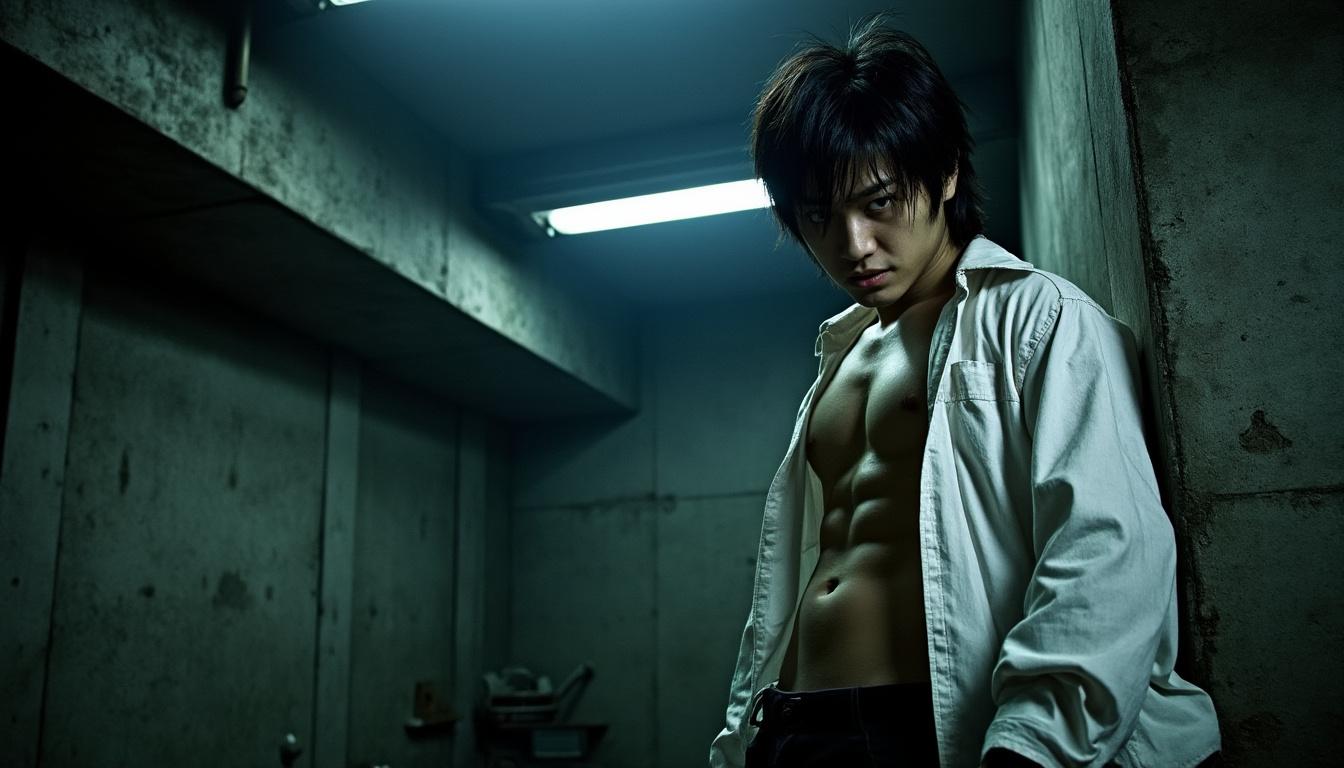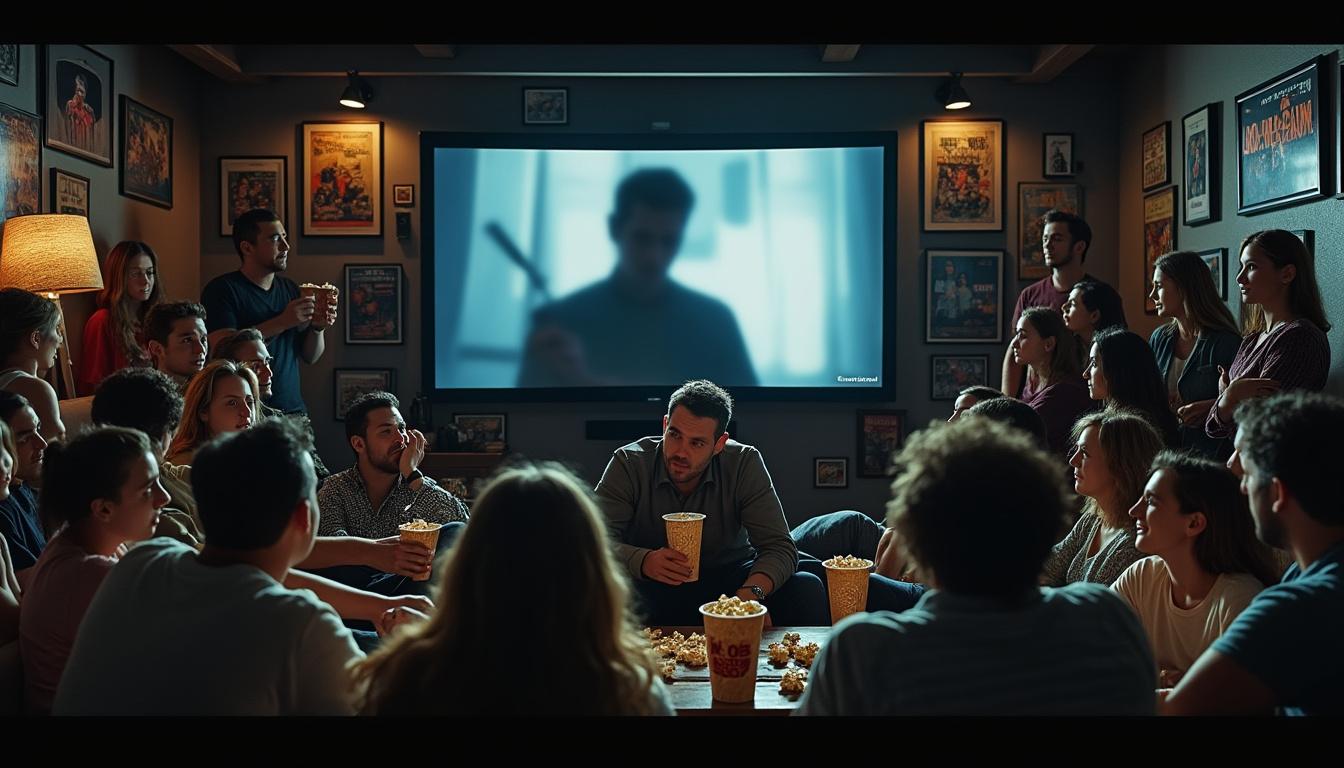The announcement of a potential sequel to the critically acclaimed film Oldboy has ignited a firestorm of emotions among fans. While some express excitement at the prospect of returning to the gripping world established in the original 2003 masterpiece, a significant portion of the fanbase is voicing dissatisfaction and apprehension about the rumored project. Concerns range from worries about honoring the iconic legacy of the film to the implications of creating a franchise out of a story that many consider to be a standalone triumph. This article delves deep into the various facets of this controversy, examining the roots of fan resistance, the cultural significance of Oldboy, and the weight of expectations placed on a sequel. The enduring impact of the original continues to resonate, shaping the landscape of film adaptations and sequels in contemporary cinema.
Understanding the Fanbase’s Distrust: The Legacy of Oldboy
At the heart of the discontent surrounding the rumored Oldboy sequel lies a passionate and deeply connected fanbase. Initially released in 2003, the film directed by Park Chan-wook quickly became a cornerstone of global cinema, revered for its stylish direction, intricate storytelling, and haunting performances. The main character, Oh Dae-su, endures a harrowing 15-year imprisonment, setting the stage for a brutal quest for revenge that captivates and unsettles audiences alike. Such a profound narrative creates substantial attachment among fans who often view it as a flawless work of art.

The Emotional Connection to the Original Film
The emotional investment of fans in the story is intimately tied to its ending, which provides a chilling closure that leaves room for reflection rather than straightforward answers. This aspect of the film’s conclusion is often cited in forums and social media, with fans arguing that a sequel could dilute or even undermine the impact of the original. The unpredictability of Oldboy—characterized by shocking plot twists and a morally ambiguous protagonist—sets a high bar for any continuation.
- Original film celebrated for its unique storytelling.
- Impactful character arcs that delve into themes of vengeance and redemption.
- Cinematic techniques that blend action and high art.
Fan Reactions: A Mixed Bag of Hope and Skepticism
When whispers of an Oldboy sequel began circulating, fans took to social media to express their feelings. While some fans welcomed the idea, hoping for fresh narratives to explore, many more turned to platforms like Reddit and Twitter to voice their skepticism. They argue that in a modern context, the original film stands as a delicate piece that should not be disturbed. Some prominent reactions included:
- “Should have been a standalone movie. The ending of Oldboy is part of what makes it special.” – @DrLiv72
- “Why mess with it, if it’s already perfect.” – @YashwantSingh_1
- “Some movies really REALLY don’t need a sequel.” – @hungry_spaceman
This multifaceted reception showcases a common theme in film culture: the fear that sequels often fail to capture the essence that made the original so beloved. With the mixed track records of adaptations and sequels, many fans recall the attempt to remake Oldboy in 2013 by Spike Lee, a move that did not resonate well with audiences or critics. The perceived failure of that adaptation weighs heavily on the minds of fans who are wary of another misstep.
The Strength of the Original: A Comparison to Other Film Adaptations
The legacy of Oldboy is not merely due to its narrative; it is also a significant part of the South Korean New Wave cinema movement. It established a paradigm of storytelling that transcends cultural barriers and has influenced numerous filmmakers worldwide. With this in mind, any attempt to follow such a classic must confront both the expectations of the original and the intricacies of adapting a cult artifact into a mainstream sequel.
| Film | Year | Cultural Impact | Sequel Status |
|---|---|---|---|
| Oldboy | 2003 | Considered a masterpiece, significant influence on revenge films | Rumored sequel |
| Spider-Man | 2002 | Revitalized the superhero genre | Multiple iterations (success) |
| Matrix | 1999 | Changed the landscape of sci-fi | Challenging sequels (mixed responses) |
| Jaws | 1975 | Pioneered the summer blockbuster | Unpopular sequels |
When analyzing successful adaptations, it is crucial to observe how sequels can sometimes manage to enhance the universe established in the originals. However, the challenge remains: to create a worthy narrative that feels authentic to the spirit of the initial work. As history shows, many revered films have seen their sequels fizzle or fall short due to creative misjudgments.
Culture and Cinema: The Evolving Landscape of Sequel Expectations
As cinema evolves, the demand for sequels merges with the ever-growing appetite for franchise-building within the industry. Audience expectations increasingly lean towards familiarity and nostalgia, often at the expense of originality. This creates a complex dilemma for filmmakers—how to honor beloved narratives and characters while also introducing new ideas that can stand alone.
- Franchise fatigue: Over-saturation of sequels in modern cinema.
- Originality vs. familiarity: The battle filmmakers face.
- Impact of streaming services promoting nostalgic reboots and sequels.
The debate over a potential Oldboy sequel encapsulates this cultural shift. Fans express concern that pushing forward with a sequel might be more about monetary gain than creative expression. Many vocalize that the film stands as a testament to storytelling prowess, and any attempts to revitalize the franchise may seem driven by trends rather than genuine artistic merit.
Historical Successes and Failures of Film Sequels
The exploration of sequels in cinema is also shaped by the historical context of such productions. Notable sequels have either enhanced or tarnished their predecessors’ legacies. Films like The Godfather Part II and Terminator 2: Judgment Day showcase how sequels can surpass their original in critical acclaim and audience reception.
| Film | Original Year | Sequel Year | Reception |
|---|---|---|---|
| The Godfather | 1972 | 1974 | Critically acclaimed, often deemed superior |
| Terminator | 1984 | 1991 | Iconic status, redefining action films |
| Jurassic Park | 1993 | 1997 | Mixed reviews, diminishing returns |
| Blade Runner | 1982 | 2049 | Visually stunning, failed to make a cultural impact |
Critics’ Perspectives: Evaluating the Potential for Oldboy 2
The implications of creating a sequel to Oldboy have not gone unnoticed by critics. Many voice their concerns that any follow-up would have to not only contend with the monumental expectations inherent in the original but also navigate the murky waters of artistic intent versus commercial viability. The film industry has seen its share of adaptations that manage to honor the source material while carving out new narratives, yet many hesitate to place Oldboy in that category.
Beyond the Remake: Learning from Past Mistakes
Critics often return to the American remake of Oldboy, directed by Spike Lee, as an example of how not to approach an adaptation. The film was not only critiqued for its perceived failure to capture the original’s essence, but also for its struggle to find an audience in a saturated market. Insights from this experience can guide future projects, emphasizing the need for innovative storytelling and a respect for the original’s narrative strengths.
- Consideration of audience connection and loyalty to characters.
- Evaluation of potential cast to ensure chemistry and authenticity.
- Incorporation of themes from the original to forge continuity.
The challenges surrounding a sequel to a film widely acknowledged as a classic underscore the reality that not all beloved stories can—or should—continue. The weight of artistic integrity often clashes with market demands, making the rumored Oldboy sequel a crucial litmus test for the current state of cinematic storytelling.
Conclusion of Perspectives: Navigating the Future of Oldboy
As discussions continue about the prospect of an Oldboy sequel, it remains essential to consider the cultural and cinematic weight of the original film. The voices of both excitement and skepticism among the fanbase highlight the delicate balance required in adapting such a storied narrative. Cinema enthusiasts await more definitive news, but it is clear that any further exploration of the Oldboy universe will face significant scrutiny from audiences and critics alike.


